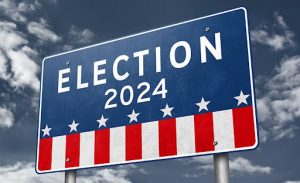The United States Senate voted to block a crucial voting rights legislation on Wednesday, with Democrats scrambling to break a Republican filibuster. Kyrsten Sinema of Arizona and Joe Manchin of West Virginia– two holdouts of the Democratic party-– also contributed to blocking the bill.
The legislation was a mixture Freedom to Vote Act and the John Lewis Voting Rights Advancement Act, both of which have been opposed by a majority of GOP lawmakers so far. At least 60 votes were needed in favour of the bill to break the Republican filibuster. The initial vote was 49-51.
Also Read: Joe Biden, Kamala Harris push voting rights to mark MLK Day
Senate Majority Leader Chuck Schumer, a Democrat from New York, voted no for procedural reasons so Democrats can revisit the legislation.
United States Vice President Kamala Harris presided over the thinly divided upper legislative house to break a tie. Following the blocking of the bill, Harris reassured that Joe Biden and her would continue to rally for the voting rights bill.
She said, “This is about the fundamental freedom to vote and what should unfettered access to the ballot. I am here to make a strong statement that this is, whatever happens tonight from the outcome of this vote, the President and I are not going to give up on this issue. This is fundamental to our democracy and it’s non-negotiable”, according to reports from CNN.
Sinema and Manchin have withstood an onslaught of criticism from Black leaders and civil rights organizations, and they risk further political fallout as other groups and even their own colleagues threaten to yank campaign support.
Also Read: Joe Biden on voting rights: I’m tired of being quiet!
Schumer contended the fight is not over and he ridiculed Republican claims that the new election laws in the states will not end up hurting voter access and turnout, comparing it to Donald Trump’s “big lie” about the 2020 presidential election.
The Democrats’ bill, the Freedom to Vote: John R. Lewis Act, would make Election Day a national holiday, ensure access to early voting and mail-in ballots — which have become especially popular during the COVID-19 pandemic — and enable the Justice Department to intervene in states with a history of voter interference, among other changes. It has passed the House.






